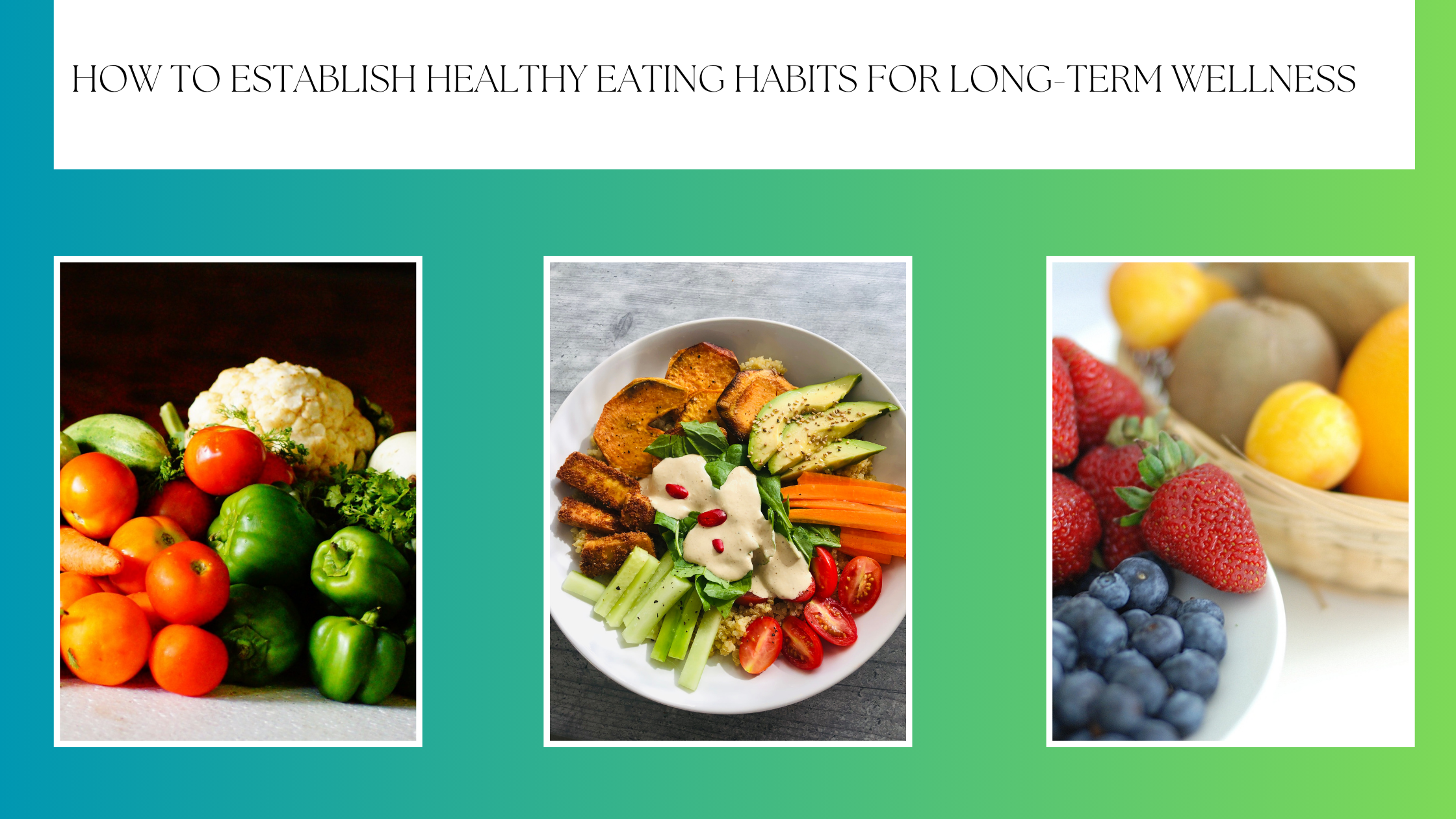Healthy eating habits are the cornerstone of long-term wellness. They not only fuel our bodies with essential nutrients but also play a crucial role in preventing chronic diseases, maintaining a healthy weight, and promoting overall wellbeing. However, in today’s fast-paced world, establishing and maintaining healthy eating habits can be challenging. This article aims to provide a comprehensive guide on how to establish healthy eating habits that promote long-term wellness.
Understanding Healthy Eating Habits:

Healthy eating is more than just following a strict diet plan or counting calories. It’s about making informed food choices that nourish our bodies and support our health goals. Healthy eating habits focus on consuming a balanced diet that includes a variety of nutrient-dense foods from all food groups.
Key Principles of Healthy Eating:

- Eat a variety of foods: Incorporate a diverse range of fruits, vegetables, whole grains, lean proteins, and healthy fats into your meals. Variety ensures that you get a wide array of nutrients essential for good health.
- Portion control: Pay attention to portion sizes to avoid overeating. Use visual cues like the palm of your hand or measuring cups to gauge appropriate portion sizes.
- Limit processed foods and added sugars: Minimize consumption of processed foods, sugary snacks, and beverages high in added sugars. Opt for whole, unprocessed foods whenever possible.
- Stay hydrated: Drink plenty of water throughout the day to stay hydrated. Limit consumption of sugary drinks and excessive caffeine.
- Practice mindful eating: Slow down and pay attention to your eating habits. Chew your food thoroughly, savor the flavors, and listen to your body’s hunger and fullness cues.
Tips for Establishing Healthy Eating Habits:

- Plan your meals: Take time to plan your meals for the week ahead. This can help you make healthier choices and avoid impulse eating.
- Prepare meals at home: Cooking meals at home allows you to control the ingredients and cooking methods, making it easier to make healthier choices.
- Stock up on healthy snacks: Keep nutritious snacks like fruits, nuts, yogurt, and cut-up vegetables readily available for when hunger strikes between meals.
- Read food labels: Learn to read food labels and ingredient lists to make informed choices about the foods you consume. Pay attention to serving sizes, nutrient content, and avoid products with lengthy ingredient lists and artificial additives.
- Practice moderation, not deprivation: Allow yourself to enjoy your favorite foods in moderation. Depriving yourself of foods you love can lead to cravings and overindulgence later on.
- Seek support: Surround yourself with supportive friends, family members, or join a community focused on healthy eating. Having a support system can help you stay motivated and accountable.
Benefits of Healthy Eating Habits:

Establishing healthy eating habits offers numerous benefits for long-term wellness, including:
- Weight management
- Reduced risk of chronic diseases such as heart disease, diabetes, and certain cancers
- Improved digestion and gut health
- Enhanced energy levels and mental clarity
- Better mood and overall sense of wellbeing
Conclusion:
In conclusion, establishing healthy eating habits is essential for long-term wellness. By following key principles of healthy eating, practicing mindful eating, and making informed food choices, you can nourish your body and support your health goals. Remember that healthy eating is not about perfection but rather about making consistent, sustainable changes that promote overall wellbeing. Start small, set achievable goals, and celebrate your progress along the way to a healthier you.
FAQs:
Aim to fill half your plate with fruits and vegetables at each meal and snack, and try incorporating them into smoothies, salads, and stir-fries.
Yes, enjoying occasional treats in moderation is perfectly fine, but try to focus on nutrient-dense foods as the foundation of your diet.
Practice mindful eating by paying attention to hunger and fullness cues, using smaller plates, and pre-portioning snacks to avoid mindless overeating.








